Hell Hath No Fury Like Mother Nature Scorned
When will humans learn? Nothing is more powerful than the natural world.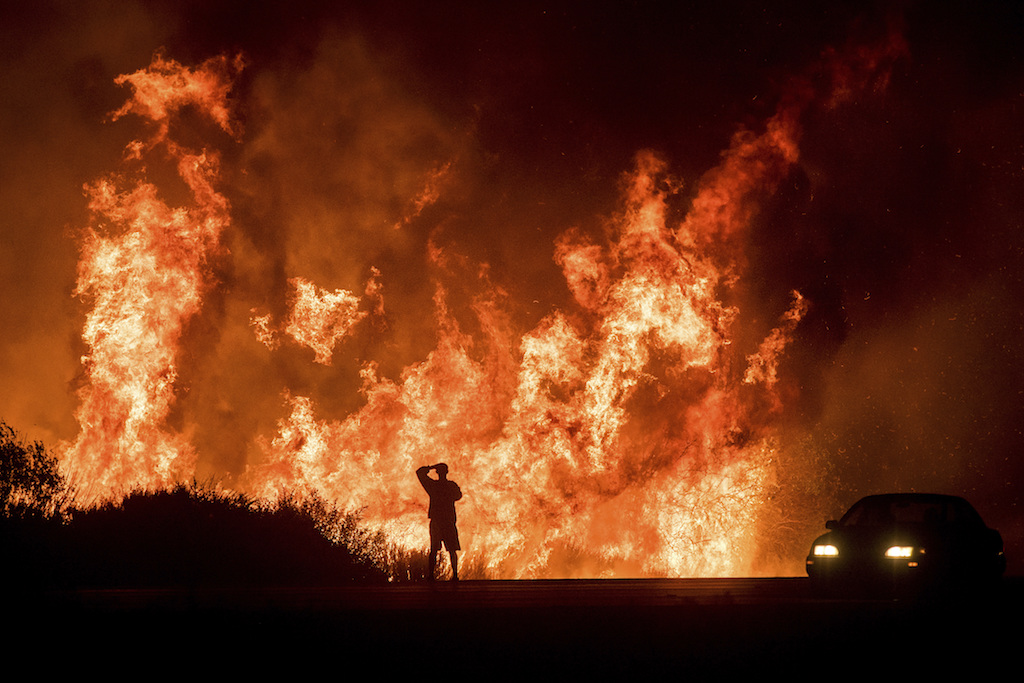 A motorist on U.S. Highway 101 watches flames from the Thomas fire leap above the roadway north of Ventura, Calif. (Noah Berger / AP)
A motorist on U.S. Highway 101 watches flames from the Thomas fire leap above the roadway north of Ventura, Calif. (Noah Berger / AP)
The world is burning.
From Ventura to the Holy Land to Pyongyang, the globe has become one big hot spot. North Korea says war with the United States is inevitable. Hamas says President Trump has “opened the gates of hell” by recognizing Jerusalem as the capital of Israel, breaking with 70 years of U.S. foreign policy and heralding “darker times” in Palestine. Six major fires in Southern California have scorched almost 160,000 acres, and they still are burning, leading Trump to declare a federal state of emergency in California and calling for disaster relief efforts in Los Angeles, Riverside, San Diego, Santa Barbara and Ventura counties.
If we aren’t careful, our planet will end up like Rome, when the great fire of the year 64 burned 70 percent of the city and left half of its population homeless.
The reality of this possibility hit home this week. On Tuesday, when I awoke for my daily run and stepped out our front door in Santa Monica, the sky was filled with smoke, ashes covered the ground, and the air hurt my lungs. The situation was the result of the Thomas fire, which started Monday night in Santa Paula, 65 miles away from Santa Monica. Santa Ana winds had brought deposits of the fire to my family’s doorstep.
On Wednesday, the danger got closer. Another blaze, the Skirball fire, erupted overnight near the Getty Center, 10 miles from my home. My office in nearby Brentwood was closed as a result. My kids’ school in Santa Monica also was closed, as were scores of other schools across the region. A meeting of the journalism club I lead in Lennox, an additional 10 miles away, had to be canceled because the 405 Freeway, one of the busiest highways in the country, was shut down in both directions. Several homes in Bel-Air, one of the world’s wealthiest neighborhoods, were destroyed. Thousands of people across Southern California had to be evacuated.
And the fires continue to rage.
Extreme fire danger due to the long duration of #SantaAnaWinds is expected to continue across much of Los Angeles and Ventura counties through Sunday. #cawx #laweather #SoCal #Thomasfire #Creekfire #Ryefire #Skirballfire pic.twitter.com/TNLLrsKVcm
— NWS Los Angeles (@NWSLosAngeles) December 8, 2017
Fires are a part of life in California. I was born and raised in the Los Angeles area and have seen my fair share. One Fourth of July, when I was 12, I even started a fire myself, by accident, with fireworks. The Pasadena Fire Department had to be called to put out the blaze on the hillside in the backyard of our family home. Thankfully, no one was hurt, and no damage was done to any structures. But my neighbors were furious, and I was mortified. On that day, I witnessed firsthand the destructive capabilities of fire and learned how a single action can impact many. I have respected nature since.
The 2017 wildfire season is California’s worst on record, and I have never seen anything like this week’s conflagrations.
Not the typical morning commute… pic.twitter.com/kJIOQeqsIK
— A. Mutzabaugh CMT (@WLV_investor) December 6, 2017
The greatest tragedy is that the fires are human-made. As Vox reports, “California’s wildfires are not ‘natural’—humans made them worse at every step. We fuel them. We build next to them. We ignite them.”
“The appropriate response is, all the weather we experience now is the result of a changing climate,” Leroy Westerling, a professor of management who studies fire at the University of California, Merced, told Wired.
We’d be fools to think that changing the climate would not have an impact on the climate. The earth is warming at an unnatural, dangerous rate. We treat the planet like a garbage dump. Air is polluted. Our planet is in a state of flux, and science experts claim there’s a 5 percent chance of humanity being wiped out by 2100. All of humanity. Gone.
You’d think such a dire prediction would sound the alarm. But humans are doing little or nothing in response to the crisis. Instead, we are accelerating the destruction of our planet.
Wired reports:
Before humans, wildfires happened maybe once or twice a century, long enough for fire-adapted plant species like chapparal to build up a bank of seeds that could come back after a burn. Now, with fires more frequent, native plants can’t keep up. Exotic weeds take root. “A lot of Ventura County has burned way too frequently,” says Jon Keeley, a research ecologist with the US Geological Survey at the Sequoia and Kings Canyon Field Station. “We’ve lost a lot of our natural heritage.”
… And there are just a lot more humans in Southern California these days. In 1969 Ventura County’s population was 369,811. In 2016 it was 849,738—a faster gain than the state as a whole. In 1970 Los Angeles County had 7,032,000 people; in 2015 it was 9,827,000. “If you look historically at Southern California, the frequency of fire has risen along with population growth,” Keeley says. Though even that has a saturation point. The number of fires—though not necessarily their severity—started declining in the 1980s, maybe because of better fire fighting, and maybe because with more people and more buildings and roads and concrete, there’s less to burn.
As [ecologist Alexandra] Syphard [said] back at the beginning of this year’s fire season, “The problem is not fire. The problem is people in the wrong places.”
We keep building. We keep polluting. We keep wasting. If we don’t start treating nature with respect, why should we expect nature to respect us?
Our predicament reminds me of a scene from “A Bronx Tale,” the 1993 classic gangster movie written by Chazz Palminteri and directed by Robert De Niro. In the scene, a motorcycle gang stops in the local mafia’s bar and causes trouble. “They had a reputation for breaking up bars, but they knew that instant, they had made a fatal mistake,” explains the narrator. The mob guys then proceed to bust up the bikers.
We humans today are the arrogant, disrespectful bikers of “A Bronx Tale.” Mother Nature is the mafia crew, and she has been disrespected one time too many. Now, she is coming to collect her debt. The wave of destruction is her way of saying, like Sonny, the mob boss played by Palminteri, “Look at me. I’m the one that did this to you. Remember me.”
We better not forget. We are all interconnected, and nature can disrupt—and destroy—all of our lives.
Humans have created this apocalyptic vision through materialism, waste and overconsumption. We have forgotten that the truest value of life is life. As “Nothing Gold Can Stay,” Robert Frost’s classic poem, says, all good things fade over time.
Nature’s first green is gold, Her hardest hue to hold. Her early leaf’s a flower; But only so an hour. Then leaf subsides to leaf. So Eden sank to grief, So dawn goes down to day, Nothing gold can stay.
Once we recognize how fleeting and precious life is, maybe we will appreciate the human things (love) more than the material things (money). Perhaps humanity will have a collective epiphany and realize people created this mess. Our disrespect of the earth—the overbuilding, overconsumption and waste—has turned Mother Nature into Monster Nature.
Nature is the great equalizer. It does not care about politics or wealth or class. It does not see religion or skin color. When disaster strikes, it is humans versus nature, and we cannot beat nature. We better wise up, humble ourselves and start working together to treat our environment with kindness and dignity.
In the end, the human war on nature is like all wars. For profit.
This moment should be our wake-up call. Rome rebuilt itself after its great fire, and California will do the same after the last ember is extinguished. We cannot stop building. That is the ethos of capitalism—the driving force of humankind today. But we must resist the urge to rebuild everything as it was. We need to build smarter, not bigger. We need to work with nature, not against her. We need to seek more democratic systems that promote sustainable coexistence with other humans and nature. We need to cultivate green energy sources and protest the plundering of natural resources. We need to stop buying what the environment killers are selling and help our home, the earth, heal.
In other words, we need to fight the desire to profit off the destruction of nature.
Then, we might have a fighting chance.
Your support matters…Independent journalism is under threat and overshadowed by heavily funded mainstream media.
You can help level the playing field. Become a member.
Your tax-deductible contribution keeps us digging beneath the headlines to give you thought-provoking, investigative reporting and analysis that unearths what's really happening- without compromise.
Give today to support our courageous, independent journalists.
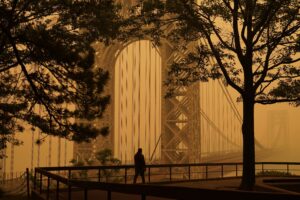
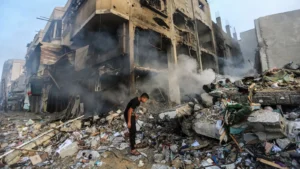
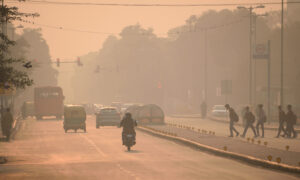
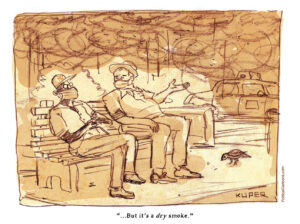
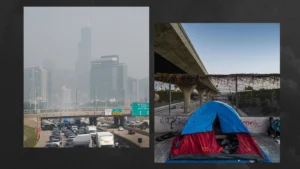
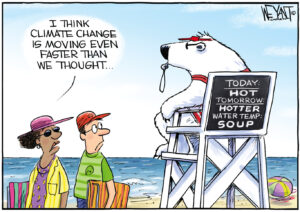
You need to be a supporter to comment.
There are currently no responses to this article.
Be the first to respond.